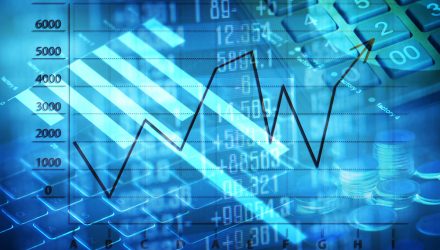The Invesco ESG S&P 500 Equal Weight ETF (RSPE) is designed to measure the equal-weighted performance of securities included in the S&P 500 Equal Weight Index that also meet certain ESG criteria.
Incepted in November 2021, RSPE is still relatively new to the market; however, RSPE shares a similar strategy with the Invesco S&P 500 Equal Weight ETF (RSP), which has a nearly 20-year track record and $32.7 billion in assets under management.
RSPE has 183 holdings, 179 of which can also be found in RSP, which consists of 507 securities. The overlap by weight of RSPE and RSP is 36%. Both funds carry an expense ratio of 20 basis points.
RSPE is judicious in its approach to integrating ESG criteria.
In deciding which companies are eligible for inclusion in the index that RSPE tracks, the S&P 500 Equal Weight ESG Leaders Select Index, each security is given an “ESG score” that seeks to identify companies well-equipped to recognize and respond to emerging sustainability opportunities and challenges in the global market.
Industry-specific questionnaires are used to analyze companies’ custom industries derived from Global Industry Classification Standard (GICS S&P 500), according to regulatory filings.
Companies provide up to 1,000 data points in response to the questionnaires which are used to score each company’s performance in relation to each specific ESG subject. If a company chooses not to actively participate in the assessment, it may be assessed based on publicly available information.
Companies are then ranked from highest to lowest according to their ESG scores, and the top 40% of constituents within each GICS S&P 500 industry group generally are included in the index, according to regulatory filings.
The underlying index also employs negative screens to exclude securities of companies that engage in certain business activities. Companies classified as part of the GICS Oil & Gas Storage & Transportation Sub-Industry Code are excluded from the eligible universe, according to regulatory filings.
Additional screens rely on information from Sustainalytics, an independent provider of ESG research, ratings, and data. Companies that derive 0-25% or more of their revenues from, or that own 10% or more of another company that engages in, the following activities are generally excluded from the index:
- Arctic oil & gas exploration
- Alcoholic beverages
- Assault weapons
- Cannabis production or distribution
- Controversial weapons
- Genetically modified plants and seeds
- Gambling
- Military contracting
- Nuclear power
- Oil and gas exploration, production, generation, refinement, transportation, or storage
- Oil sands extraction
- Palm oil production and distribution
- Pesticides
- Riot control weapons
- Shale energy extraction
- Small arms
- Thermal coal
- Tobacco
Information from Arabesque S-RayTM is also used to exclude poor performers in relation to the principles of the United Nations Global Compact. The UNGC represents a set of values that the UN believes that responsible businesses should incorporate into their operations in order to meet fundamental responsibilities in the areas of human rights, labor, the environment, and anti-corruption, according to regulatory filings.
For more news, information, and strategy, visit our Portfolio Strategies Channel.

